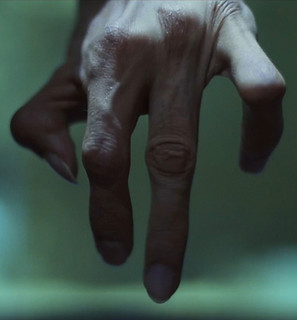







TRAILER
SYNOPSIS
David dreams of becoming a pianist like his father, José Luis, who believes it is impossible due to his son's physical characteristics: short arms, four-fingered hands, and limited hearing.
Thanks to his tenacity, David shows him that he can play his way, and together they begin a musical journey that culminates in a new challenge for David: premiering the difficult piano and orchestra concerto that his father composed for him.
THE PROTAGONISTS

David González Ladrón de Guevara (Guadalajara, Mexico, 1996) was born into a family of musicians, so from a young age he wanted to venture into this art.
He is one of the few known cases of Miller syndrome in the world, a rare genetic condition that causes craniofacial malformations, narrow ear canals, short, curved arms, and hands and feet with four fingers and limited mobility.
José Luis González Moya (Guadalajara, Mexico, 1961) is a renowned pianist, composer, and conductor with an extensive career, but above all, he is a man devoted to his family. He maintains a special relationship with his son, David, for whom he specifically composed the Concerto for Eight Finger Piano and Orchestra.
MILLER SYNDROME
Miller syndrome also called Genee-Wiedemann acrofacial dysostosis/ Postaxial acrofacial dysostosis is a highly rare disease with only 30 individuals documented in the medical literature, worldwide. Until 2010, the cause of Miller syndrome was unknown.
Individuals with Miller syndrome typically have facial differences, which can include underdeveloped cheek bones, a small lower jaw, cleft palate and cleft lip. These facial differences can cause feeding problems and breathing problems in infants.
Other facial features can include eyes that slant downward, eyelids that turn outward, and a notch in the lower eyelids.
Many individuals with Miller syndrome also have small, cup-shaped ears. Some have hearing loss caused by defects in the middle ear (conductive hearing loss), which can lead to a delay in speech development.
The bones of the arms and legs often develop abnormally. The most common problem is the absence of the fifth (pinky) fingers and toes. They may also have webbed or fused fingers or toes and underdeveloped bones in the forearms. Another feature of Miller syndrome is the presence of extra nipples. Abnormalities of the heart have also been reported in individuals with this condition.
In 2010, a groundbreaking genetic research led to the discovery that variants (also called mutations) in the DHODH gene cause Miller syndrome.
This condition is believed to be inherited in an autosomal recessive pattern, which means both copies of the gene in each cell must have a variant to cause the disorder. The parents of an individual with an autosomal recessive condition each carry one copy of the altered gene, but they typically do not show signs and symptoms of the condition.
https://medlineplus.gov/genetics/condition/miller-syndrome/#statistics



COLLABORATORS


























































